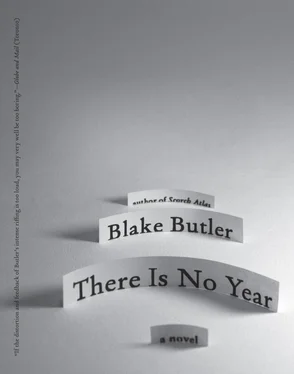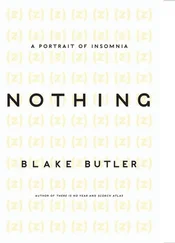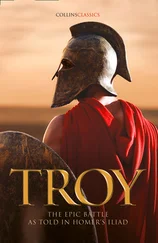The mother went to the freezer and pulled it open and saw the son. The son looked tired, the same way everyone else she’d seen looked tired. Everyone everywhere at every moment as tired as they could be. The mother asked the son what he was doing. Her voice came out much higher than it did most days. The son said something wadded. The son had something in his mouth. The mother asked him to repeat. It came out more off. The son was trying to talk in the same voice as the voice that had called him on his cell phone, but the mother couldn’t know that. The son had abrasions grown in beneath his hair that the mother would never find.
The mother did see, though, how the son now had long brown streaks worked under his eyes — so brown they looked like makeup. She rubbed one with her thumb and made a smudge. The son looked like a tiny warrior, or a linebacker. The son’s eyes were whirling, as had the gulls.
Hey, the son said, staring at her. Hey. Hey. Hey. Hey. Hey. Hey. Hey. Hey. Hey.
The mother clasped her grass-green hands.
THE MOST FREQUENTLY PLAYED SONG ON THE SON’S COMPUTER BEFORE THE SON ERASED THE CONTENTS OF THE HARD DRIVE AND BURNED IT AND BURIED THE COMPUTER IN THE WOODS
1. _________ (197136 plays). This song’s title appeared in the son’s iTunes browser as a trail of mangled digits or a blur. The son could not view the details of the track. When the son tried to click the track to play it, iTunes would crash and often so would the computer. He did not know how the song had gotten onto his machine. Sometimes the son was able to mouseover the title when rolling in from certain angles and the album art would appear in the bottom corner of the iTunes browser. The album’s artwork appeared to be the face of a man obscured by several kinds of light, though the son could never see the image long enough to be certain of the features, or the flesh. The song’s play count rose week after week, despite the son never hearing, and continued when the son turned the computer asleep or off. In this way this song covered the son’s whole life, up to a point. Sometimes unplugged, the computer’s encasement would discolor or spin or flake or walk. The son could not bring himself to delete this song.
The next time the father went to get the mail he found the whole box fat with caterpillars. They spilled out as he pulled the lid down. They were curled and brightly hued, some in a webbing. Some had hair as long as half a foot and fat as someone’s finger. Some wore yellow and some wore orange, some wore gold or green and black or silver, messed in spindles, mounds. Some were a color the father could not think of the name of, though somehow it reminded him of a stretch of land for sale somewhere in Nebraska. The father had never been to Nebraska. The critters fell and wiggled on the concrete. There were hundreds of them stuffed inside the mailbox. There was no room for the mail.
The father went to the garage and got a cup and bucket and went back and used the cup to scoop the caterpillars out. He didn’t want to touch them with his fingers — he didn’t like that. Crawling. He didn’t want to kill them either. The father had heard stories of men becoming things in other lives — how when you are reborn you could come as any other. You could come back as a wall. The father imagined his father there in the mailbox now, spackled, wet with wriggling, and his father’s father, and father’s father’s father, on from there. The father imagined all the prior men in his dead family there in the mailbox waiting for him, destined. This was some kind of delivery.
In careful scoops the father took the caterpillars from the mailbox and when he’d filled the bucket up he carried them away. He went off behind the house and through the forest following a wire until he got to some small exact place, in the mud. He dumped the bucket in a pile of colored moss or mold that’d grown up in this location, groggy bloom. The caterpillars (fathers) squirmed and squirted. Many slunk or screamed along the ground. Some submerged headfirst down into the dirt, building tunnels, which the father had never seen a caterpillar do, down and down into the earth. Then silence.
The father went back to the mailbox and filled the bucket up again. He hadn’t thought there’d be enough caterpillars to fill the bucket twice. But the caterpillars filled the second bucket and a third and fourth and once again. He carried each load to the same place, the ground there darkening with every dump, rising up, a structure . By the time the father had carried twelve loads he was very tired and soaked with wetting and not so much interested in preserving the caterpillars anymore. He could hardly blink or breathe. He stopped and stood for some long second staring straight up into the long column of air carried above him, into the barely yellow sky, on pause — his spine inside him, hiding — his head’s blood inside out and upside down.
If the father ever played a Hammond organ, he would find he was naturally a master. Elevator music. Careful evenings. Tone wheels in his heart and in his hands.
Moving again from the mailbox, the father went and uncoiled the garden hose from its spindle set upon the house, its source mouth fed by pipes buried underneath the dirt. The father dragged the hose around the house. With the far end of the tangle he sprayed out the inside of the mailbox, flooding pressure, until it was clean and clear enough to kiss. On the ground below the mailbox the crap from all the gashing caterpillars pillowed and piled over. Their minor bodies gave off what looked like human blood, a little lake and many rivers. The warm ground seemed to sauté the runoff.
Several thousand gallons later— in which a whole day passed, bringing the father full-scale back to the exact second of the day as the second in the day before when he’d stopped realizing where he was —the father stood there for some time in waning sunlight and admired what he’d done. His hands had a slow itch. He craved chili. He scratched his hands together, knuckles in friction, and then he went inside and got online. On a credit card he’d never used before, christening , he ordered ten new magazines that would be delivered to his gorgeous, sparkling, brilliant, bending mailbox once a month.
The magazines were:
1. Penthouse
2. Enormous Women
3. Better Homes & Gardens
4. The Father Life: The Men’s Magazine for Dads
5. [THIS MAGAZINE DOES NOT HAVE A NAME]
6. 2600: The Hacker Quarterly
7. Animal Husbandry Enthusiast
8. Teen People
9. TV Guide
10. Guide to TV Guide
And yet the next morning, when the father came to the mailbox, he found it once again unclean. A new crop of caterpillars had convened around the post and swathed the unit with a fine tent of thready sheeting. The material was half-translucent so that through and around it the father could see the mass of caterpillars moving in arteries, some still gushing out the thread. The stunted light from overhead caused the bulb to sort of glow around the edges, melting the nest in places, dripping to the ground.
Near the center of the mass the texture became so thick that the father could no longer see the mailbox, nor could he really see the wooden stand that’d held its husk up, though he knew it had to still be in there, didn’t it now, did it not? In this massive clot condition the mailman would not have anywhere to stick the mail, the father knew, not unless it could be wedged up in the larval sheeting, which made even the father’s stomach lurch. The father would not receive any of his new magazines, he realized — he’d not be spending any of the several coming evenings locked in one of the house’s several bathrooms or large closets, studying the glossy pages of young famous men and women and whatever other things the magazines tried to sell — he would not receive that pleasure. He would get older every day.
Читать дальше












